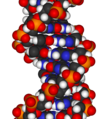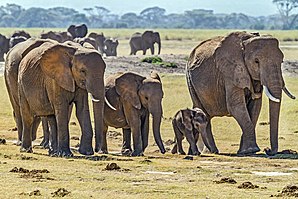Posts
Natural science
Natural science is a branch of science concerned with the description, prediction, and understanding of natural phenomena, based on empirical evidence from observation and experimentation. Mechanisms such as peer review and repeatability of findings are used to try to ensure the validity of scientific advances.
Natural science can be divided into two main branches: life science (or biological science) and physical science. Physical science is subdivided into branches, including physics, chemistry, astronomy and earth science. These branches of natural science may be further divided into more specialized branches (also known as fields).
In Western society's analytic tradition, the empirical sciences and especially natural sciences use tools from formal sciences, such as mathematics and logic, converting information about nature into measurements which can be explained as clear statements of the "laws of nature". The social sciences also use such methods, but rely more on qualitative research, so that they are sometimes called "soft science", whereas natural sciences, insofar as they emphasize quantifiable data produced, tested, and confirmed through the scientific method, are sometimes called "hard science".[1]
Modern natural science succeeded more classical approaches to natural philosophy, usually traced to ancient Greece. Galileo, Descartes, Bacon, and Newton debated the benefits of using approaches which were more mathematical and more experimental in a methodical way. Still, philosophical perspectives, conjectures, and presuppositions, often overlooked, remain necessary in natural science.[2] Systematic data collection, including discovery science, succeeded natural history, which emerged in the 16th century by describing and classifying plants, animals, minerals, and so on.[3]Today, "natural history" suggests observational descriptions aimed at popular audiences.[4]
Applied science
pplied science is the application of existing scientific knowledge to practical applications, like technology or inventions.
Within natural science, disciplines that are basic science, also called pure science, develop basic information to predict and perhaps explain and understand phenomena in the natural world. Applied science is the use of scientific processes and knowledge as the means to achieve a particular practical or useful result. This includes a broad range of applied science related fields from engineering, business, medicine to early childhood education.
Applied science can also apply formal science, such as statistics and probability theory, as in epidemiology. Genetic epidemiology is an applied science applying both biological and statistical methods.
Health sciences
Health sciences – are those sciences which focus on health, or health care, as core parts of their subject matter. Because these two subject matter relate to multiple academic disciplines, both STEM disciplines as well as emerging patient safety disciplines (such as social care research) are relevant to current health scientific knowledge.
Health sciences knowledge bases are currently diverse, with intellectual foundations which are sometimes mutually-inconsistent. There is currently an existing bias in the field, towards high valuation of knowledge deriving from controlling views on human agency (as epitomized by the epistemological basis of Randomized Control Trial designs); compare this against the more naturalistic views on human agency taken by research based on Ethnography for example).
Next Generation Science
Synthetic biology:
Synthetic biology is an interdisciplinary branch of biology and engineering.
The subject combines disciplines from within these domains, such as biotechnology, genetic engineering, molecular biology, molecular engineering, systems biology, membrane science, biophysics, chemical and biological engineering, electrical and computer engineering, control engineering and evolutionary biology. Synthetic biology applies these disciplines to build artificial biological systems for research, engineering and medical applications.
DNA computing:
DNA computing is a branch of computing which uses DNA, biochemistry, and molecular biology hardware, instead of the traditional silicon-based computer technologies. Research and development in this area concerns theory, experiments, and applications of DNA computing. The term "molectronics" has sometimes been used, but this term had already been used for an earlier technology, a then-unsuccessful rival of the first integrated circuits;[1] this term has also been used more generally, for molecular-scale electronic technology.




